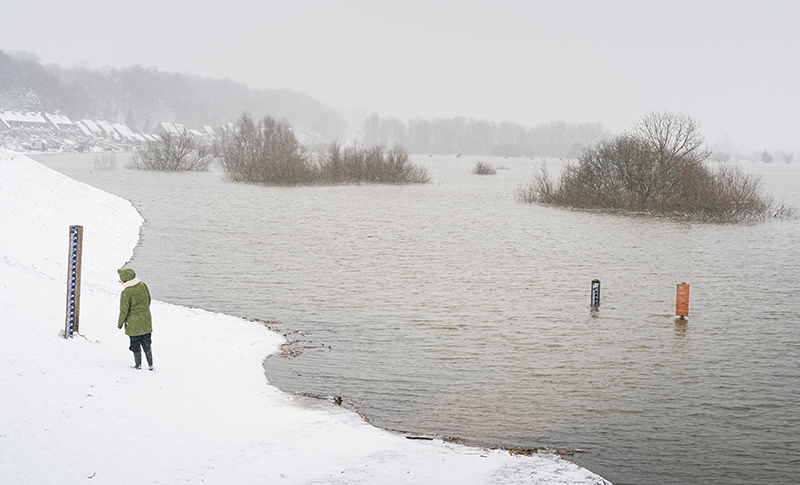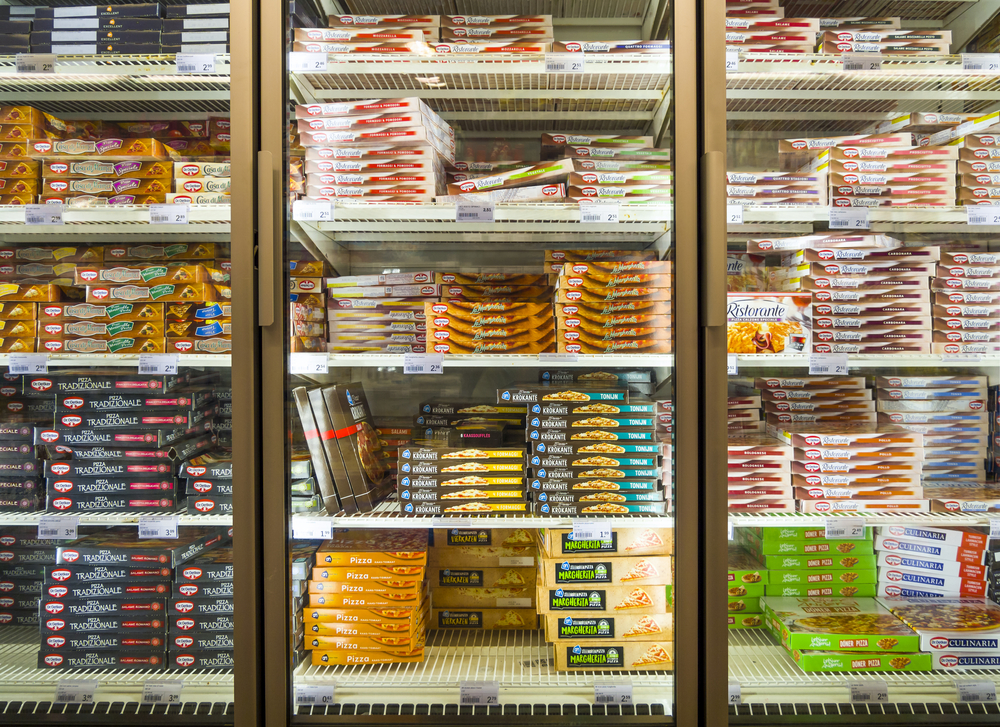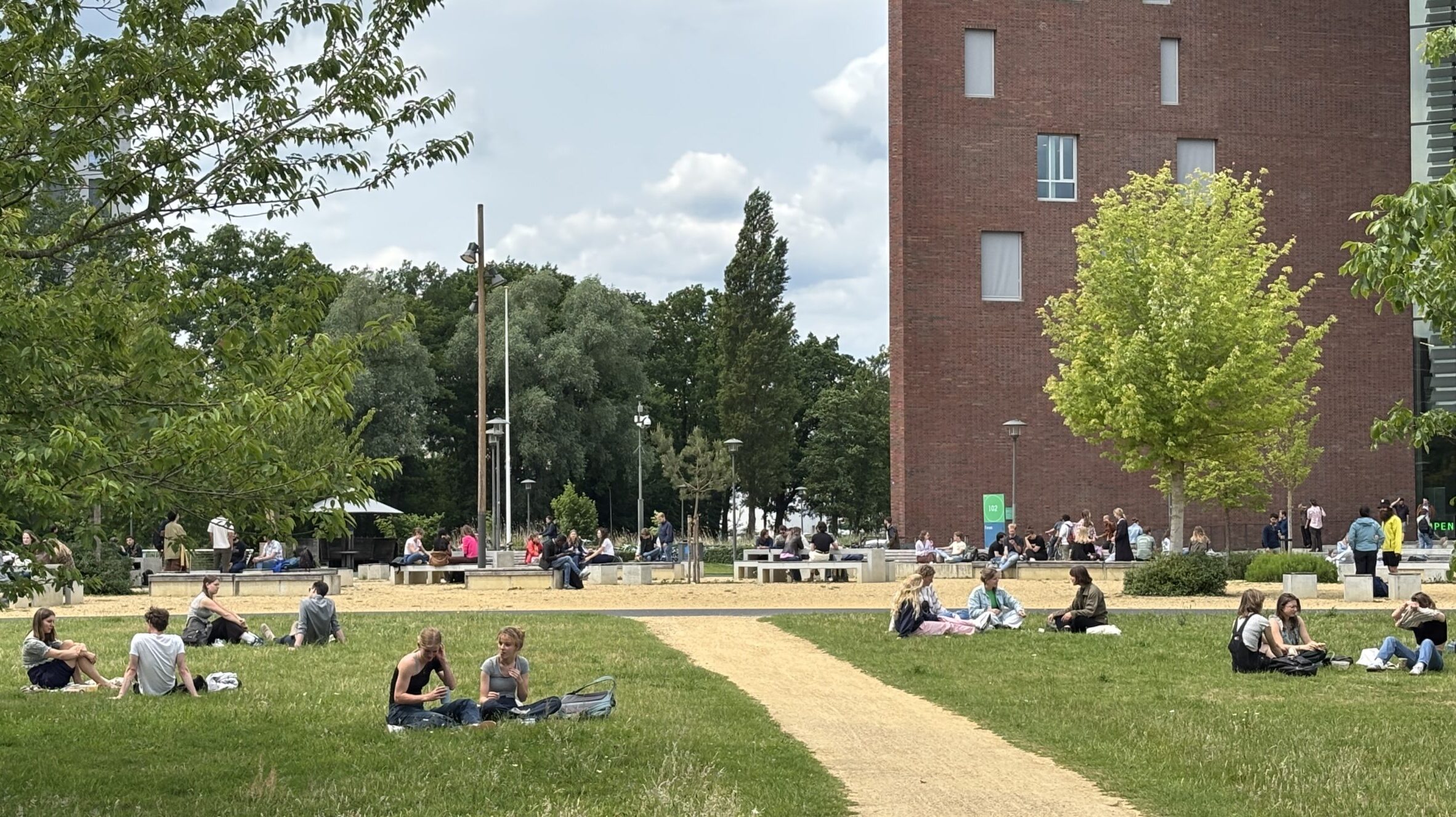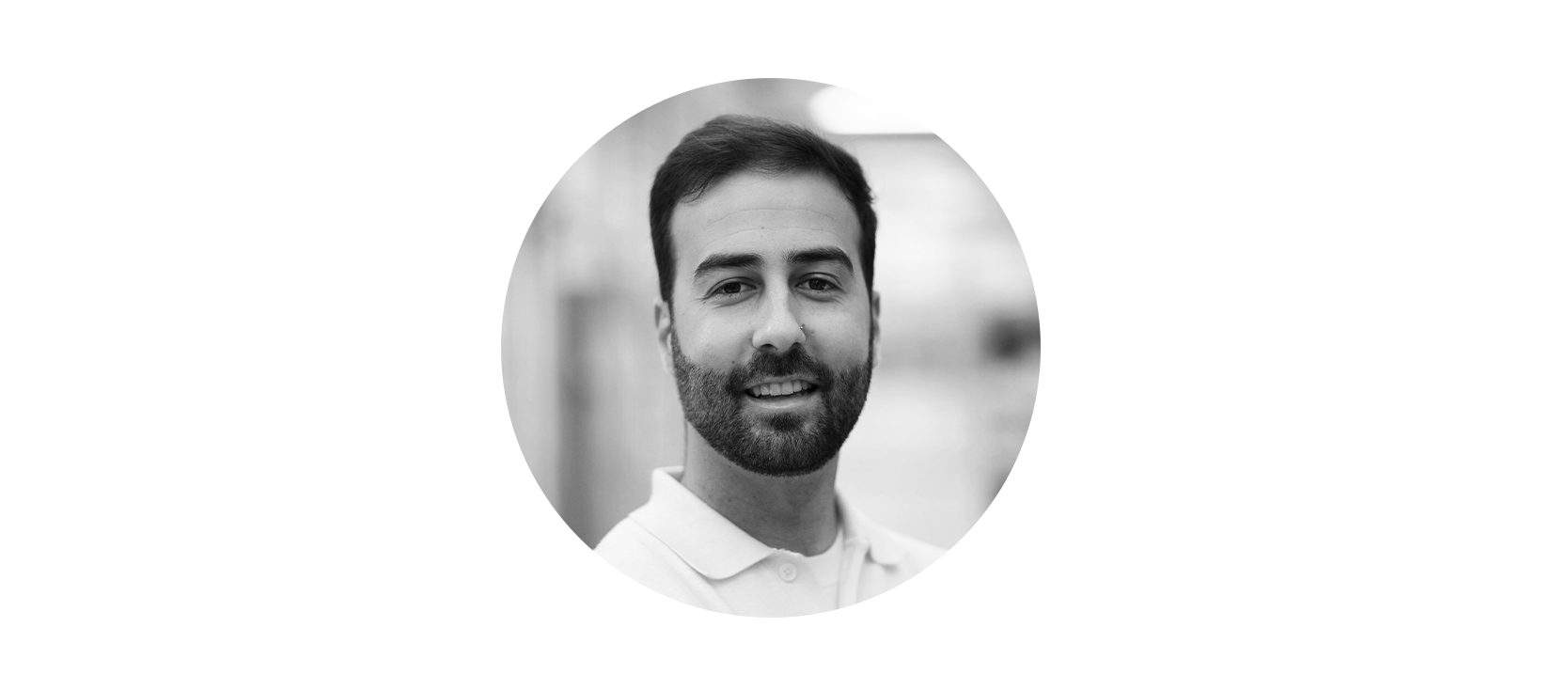Concern about the climate can be so strong among Wageningers that it affects existential choices such as whether you dare give in to your desire to have children. How can you carry on with your life when you are that worried about the planet? Resource looked for guidance from eco-philosophy.
Climate scientists who say out loud that limiting global warming to 2 degrees is no longer feasible. A climate conference with results that even the conservative Dutch Prime Minister Mark Rutte says are ‘not enough’. Worried noises coming from the COP15 biodiversity summit in Montreal. And in the meantime, the realization that the Greenland ice cap continues to melt at record speed and that more Brazilian Amazon rainforest was felled last spring than ever before…
It’s enough to make you depressed, and that is not just a figure of speech. Climate depression is not on the official list of psychiatric conditions, but the fact is that the climate and biodiversity crises are seriously lowering the spirits of more and more people, especially the young. Recent peer-reviewed British research shows that over 80 per cent of young people aged 16 to 25 are worried or very worried about climate change. More than half of them feel sad, anxious, angry, guilty or powerless about it.
Such concerns and emotions can be heard in Wageningen too. Some WUR folk channel their sometimes very strong feelings into activism (see page 18), but others are at risk of going under due to their anxiety about the climate. We must take that seriously, says Manon Danker, who led a session on ‘How to deal with climate anxiety’ during Surf your Stress week last November. The session made an impression on people. She knows it’s tough. But no one and nothing, not even the climate, stands to benefit from you having a burnout because of climate stress. ‘See your emotions differently: as information, as guides. If you’re very emotional, it doesn’t have to mean there’s anything wrong with you – it shows you care passionately about the planet. You can link that realization with an action plan. What kind of world do you want and how are you going to put your back into creating it?’
The same boat
Danker started out as a sociologist and environmentalist — not in the Wageningen tradition, but educated at the two Amsterdam universities. After a long career in those fields, she chose a new direction. ‘I’ve been feeling very sad for many years about what is happening to the Earth, especially the loss of biodiversity. I worked as a scientist in several nature reserves, and I experienced first-hand the enormous tension between wilderness and domestication, in palm oil plantations for instance. I got depressed about it and disillusioned with humans; it baffled me that we do so much damage as a species. I had to take those emotions seriously. And I wanted to find a methodology or approach for dealing with them.’
Danker found something to hold on to in the work of eco-philosopher and activist Joanna Macy. Her book The Work That Reconnects assumes that humans have an unbreakable bond with the Earth, as the planet that gives us life and sustains us.
Many ecosystems are hanging by a thread, but people can innovate
Thanks to that connection, every human being is in theory capable, after thorough self-examination, of arriving at a fundamental sense of what their contribution to a better world could be (she calls this ‘active hope’). This does not necessarily have to be anything grand and enthralling; co-creating the world you want to live in can also be done in small steps – it is different for everybody.
Danker said goodbye to academia and made a name for herself as a process facilitator for The Work That Reconnects. It was a step into uncertainty, as she put it: ‘Not knowing for sure, but feeling and exploring.’ She guided many like-minded people and she regained her faith in humanity. ‘If you are sensitive to all that’s happening in the world, you can find yourself wanting to cut yourself off from other people,’ she says. This is common among people who are deeply concerned about the planet: a sense of being alone, the loneliness that creeps up on you when your family or friends seem to hardly care while you are losing sleep about it.
That kind of loneliness came up a lot during the meeting at WUR. ‘A lot of students struggle with the question of how to relate to the people in their lives when it comes to their concern about the Earth,’ says Danker. ‘You can feel very alone on this and can even start doubting yourself. But you are not alone.
Nothing or no one, not even the climate, benefits if you have a burnout due to climate stress
We are all in the same boat and at the moment it is touch and go whether we’re going to sink. It would be great if we could acknowledge that, instead of adopting an ostrich policy or bickering about the causes or the solutions. In Wageningen as elsewhere, there are all sorts of different schools of thought. Have a chat, for a change, with someone who thinks differently from you. Learn to communicate with people with different perspectives. It’s especially important not to lose touch with each other now that it’s so urgent.’
Falling and rising
During Surf your Stress week, Danker used an exercise to put across the power of interconnectedness. She asked all those present to stand and imagine they were trees in a forest, and to take any two of the other ‘trees’ as their reference point. As soon as one of ‘your trees’ was felled, you fell to the ground too. Once Danker had signalled to the first tree to fall, all the workshop participants went down like dominoes: felled by disaster. But her real message was still to come: as soon as one of your trees rises again, you rise again too. That process seemed to go even faster. Danker’s point was clear: positive choices can have just as much of a snowball effect as negative ones.
Danker says she can relate to her own species better these days: her view of humanity has improved. ‘I have gained more hope that people are willing to look beyond their own interests, and that we are capable of looking at things without an anthropocentric frame.’ Not that her worries about the planet are all gone. ‘Important things are certainly still going to be lost; many ecosystems are hanging by a thread. But people can innovate and start making different choices.’
People in the west, as she sees it, are still inclined to take refuge in consumerism to avoid facing the harsh reality. ‘But the tables will turn there too, eventually. Really, it’s due to privilege that we still get away with an ostrich policy. Elsewhere in the world, people are already in the throes of the consequences of climate change, and they have run out of options. We still have a certain amount of freedom of choice,’ she argues. But that doesn’t mean we’re going to escape unharmed, adds Danker. ‘But realizing that you still have a choice as an individual, and that you can work towards the kind of world you want to see, can colour your way of life and give you renewed energy. I hope the WUR community feels that too.’
More complete as a person
And what if it nevertheless starts to get too much for you, and you feel small and powerless? Get out into nature, is Danker’s advice, and count your blessings. ‘That makes you more resilient. Getting away from consumerism and surrounding yourself with the beauty of nature will help you feel that you have enough and that you are enough. Realizing that makes you more complete as a person. It is enriching to strengthen your relationship with the Earth in this way, even if that relationship can be very painful at present. And get together with others: it is tremendously hope-giving to know that you are not alone.’

 Winter flooding in the flood plains around Wageningen in 2021. More than half of young people aged 16 to 25 feel sad, anxious, angry, guilty or powerless about climate change. Photo: Sven Menschel
Winter flooding in the flood plains around Wageningen in 2021. More than half of young people aged 16 to 25 feel sad, anxious, angry, guilty or powerless about climate change. Photo: Sven Menschel 

